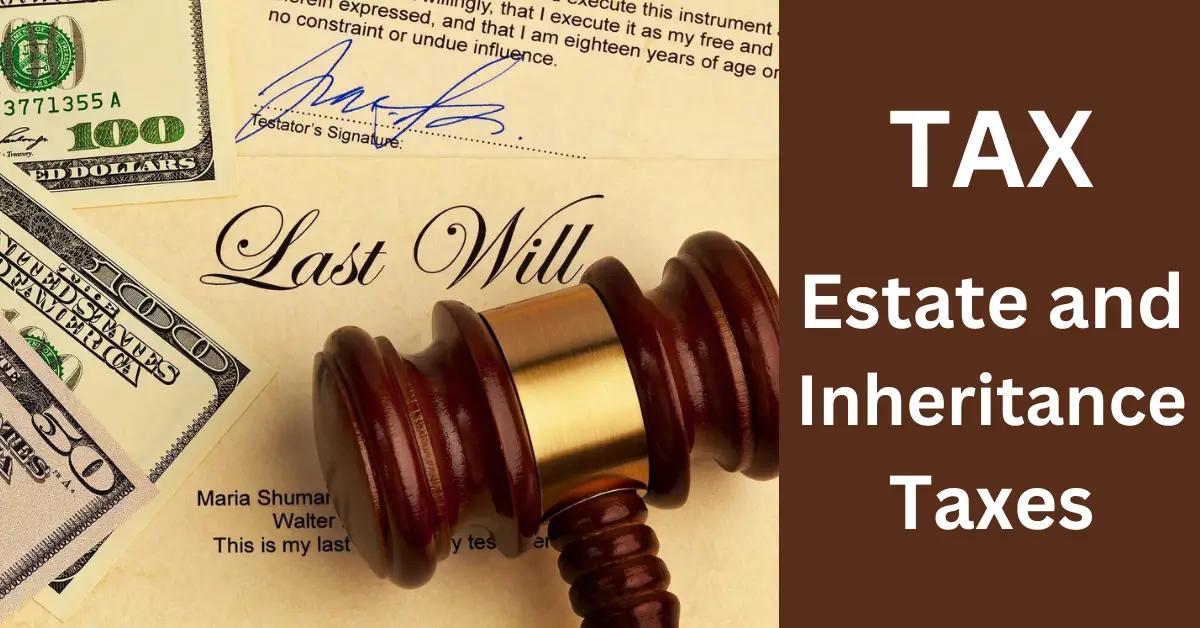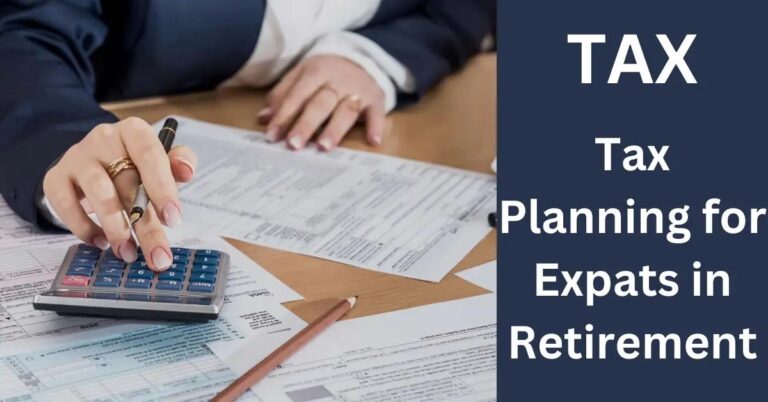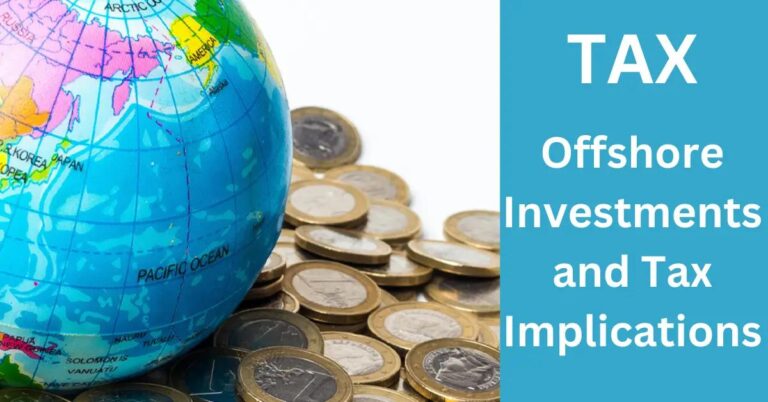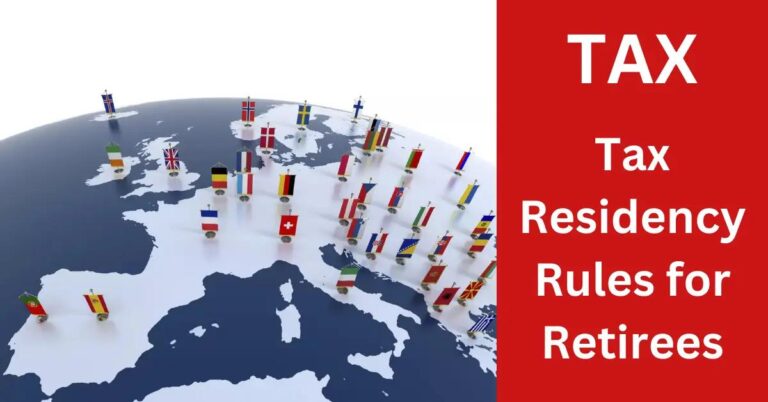TL;DR:
- Retirees abroad should check domicile status due to tax implications.
- Cross-border estate planning is complex; international tax advice is crucial.
- Expatriate trusts can reduce taxes and ease asset transfers.
- Local tax advice is essential for managing global wealth.
- Inheritance tax laws vary by country; understanding them is important.
- Double taxation treaties prevent tax duplication; expert advice helps.
- Strategic tax planning and compliance minimize tax burdens.
- Managing overseas assets involves understanding local laws and taxes.
- Global estate taxes require knowledge of treaties and local regulations.
- Update wills and adapt trusts to meet local legal requirements.
- Succession planning for expats is crucial, considering cross-border rules.
- Diversifying investments can offer tax benefits; expert guidance is key.
Navigating estate and inheritance taxes feels complex when retiring abroad, but don’t worry. Whether you’re settling in Europe, Asia, or beyond, knowing the right strategies helps. I’ll explain key estate planning considerations and how domicile impacts taxes. We’ll dive into inheritance tax laws for expats and leverage treaties that save money. Plus, discover effective ways to manage overseas assets and optimize taxes. Let’s make your global retirement seamless!
What Are the Key Considerations for Estate Planning for Retirees Living Abroad?
Living abroad means reconsidering your estate plans. The first thing to check is your domicile status. Your country of domicile impacts how taxes apply to your estate. Many people confuse residence with domicile, but these two are not the same. Where you live might not be your legal domicile, and that affects taxes.
Cross-border estate planning is next on the list. If you live in one country but hold assets in another, things get complicated. Each country has its own rules on estate taxes. Here’s where international tax advice becomes crucial. A skilled advisor helps you understand and navigate these complexities.
One tool in your planning kit might be an expatriate trust. This helps in managing your wealth across borders safely. Trusts can reduce tax loads and ease the transfer of assets upon your passing. These trusts become effective if set up correctly considering local laws. Ask yourself: How can I avoid estate tax as a foreigner? A well-structured trust might be the answer.
Managing your wealth globally demands close attention. You might own property, bank accounts, or investments in different countries. Each of these requires tailored strategies for tax efficiency. Be sure to gather local tax advice on each of these holdings.
Every retiree abroad needs a comprehensive plan and cross-border estate strategies. Expert advice is crucial for forming these plans because of fluctuating international tax laws. Seek advisors familiar with the nuances of various tax jurisdictions.
Understanding these steps ensures that your heirs receive the maximum benefit and minimizes municipal tax applications. As retirees living abroad, preparing for these challenges secures your legacy. Don’t wait; start now to find peace of mind for both you and your family.
How Do Inheritance Tax Laws Affect Expats?
Inheritance tax laws vary greatly from country to country. Some places may tax inheritances, while others do not. So, if you’re retiring abroad, it’s important to know each country’s laws. Do you have to pay taxes on inheritance from another country? Yes, sometimes, but not always. It depends on the country’s rules where you live and where the inheritance comes from.
Countries base their taxes on residency, domicile, or simply where the assets are located. Understanding global inheritance tax implications for expats can be confusing but crucial for financial planning. Let’s say you receive an inheritance from the United States, but you live in France. France might tax worldwide assets, including what you inherit from the U.S.
Residency laws also impact inheritance tax. For example, if you live in the U.K. for more than 15 years, you might owe tax there on your global assets. You may also affect your tax duties by shifting your residency between countries.
Will I be taxed if I receive inheritance money from overseas? Again, this varies. Many expats face double taxation without proper planning. Some countries have treaties to prevent this, but others do not. It’s vital to know the tax liabilities for retirees living abroad regarding inheritances.
For retirees abroad, it’s wise to consult an international tax expert. They can guide you on abiding by both home and host country rules. You might also want to explore tax treaties, which can save significant costs. Joining expatriate communities and forums may also offer insights and help. With the right knowledge, expats can plan better for taxes on inheritances and avoid unpleasant surprises.
Always remember, the key is to stay informed and prepared, ensuring a smoother path in managing your international wealth.
Which Double Taxation Treaties Can Benefit Retirees Abroad?
Double taxation treaties play an important role for retirees living abroad. These treaties help in avoiding being taxed twice on the same income. Many countries have agreements known as double taxation treaties. They make sure you do not pay taxes twice on the same money.
If you are a retiree who owns property or earns income in two countries, these treaties are key. They ease your tax burden and make financial planning easier. The good news is that most countries want to avoid double taxation too, so they create treaties with each other.
One common question is about the estate tax exclusion for non-US citizens. In most cases, the treaties decide if you pay estate tax in one country or both. This is helpful because not all countries tax estates the same. Treaties help solve problems between different countries’ tax rules.
Treaties are not the same everywhere. Some might focus on income tax, while others may deal with estate or inheritance tax. It’s good to know which treaties apply to your situation. For example, some treaties may allow a tax benefit on inheritance if your estate spans multiple countries.
For those wondering about tax treaty benefits for expats, remember that a treaty might reduce or eliminate tax duties. This helps in keeping more of your hard-earned money. Keep in mind that the details can be tricky, so expert advice can be valuable.
Many times, you can find detailed information about treaties online at government sites. A useful starting point is the U.S. Department of the Treasury’s website for U.S. citizens, which explains different treaties and their benefits.
In short, double taxation treaties help retirees keep financial peace of mind when living abroad. They bridge the gap between countries’ tax laws and simplify estate planning. Knowing where and how these treaties apply can make a big difference in managing your finances globally.
What Are the Best Tax Planning Strategies for Expatriates?
Achieving effective tax planning requires knowledge and strategy. Expatriates need to understand different tax laws. Each country has its own rules, which can affect your estate.
Strategic tax planning is crucial. It minimizes inheritance taxes overseas. To begin, pinpoint countries where you might owe taxes. Check if they offer exemptions or reductions.
Integrating estate planning with global retirement plans helps. Align your estate goals with tax laws abroad. This ensures your plans remain compliant and effective.
Consider multi-country tax compliance. Some countries have agreements to avoid double taxation. They ensure you are not taxed twice on the same income. Use these treaties to your advantage.
Reducing tax burdens on international estates is vital. Utilize expat trusts and other planning tools. They offer protection and potential tax savings.
Understand your domicile. Your domicile status affects your tax obligations. Determine your domicile to estimate taxes accurately.
Expat tax optimization methods help you achieve efficient planning. They involve strategically timing your financial actions. Plan when to transfer assets or receive income.
Seek professional international tax advice. A global tax advisor understands complex tax laws. They guide you on the best strategies for your specific needs.
Integrate your tax planning into your global retirement plan. Look at how to align them with global estate needs. This makes managing your finances easier and more efficient.
Visit International Taxation Resources for more information. They offer insights into global tax strategies and compliance.
When it comes to estates and taxes, knowledge is power. By understanding and planning your taxes, you protect your future. Smart planning today secures peace of mind tomorrow. Always stay informed and proactive with your tax planning choices.
How Can Retirees Manage Overseas Assets Effectively?
Managing overseas assets for retirees involves some unique challenges. If you own property abroad, you must understand how laws in each country apply to your estate. Determining the value of your property becomes complex when exchange rates and local market values fluctuate. Consider using professional appraisers who understand the multinational context to provide accurate estate valuation.
Operating foreign properties from afar requires careful planning. First, hire a reliable property manager. They ensure your property is maintained and rented, if needed, so you do not lose income. Next, learn about tax implications of owning property abroad. Each country has its own tax laws. Some might ask for a percentage of your rental income. Seek advice from a tax expert to understand these complex rules.
Digital tools make managing expat estates easier, providing you with real-time data on property-related expenses and income. Set up robust cyber protection for your accounts, though. Always use secure networks to access your accounts. This ensures your financial data stays safe.
One common question is, “What are the tax implications of owning property abroad?” Initially, expect to pay local property taxes. You might also face capital gains tax in your home country if you sell your property. Knowing the tax obligations in both your current and home countries helps you avoid unexpected bills.
Challenges arise with currency exchange when managing these assets. Exchange rates fluctuate, which affects your wealth. Setting up multi-currency bank accounts helps manage this risk. This allows you to hold and transfer money in various currencies, reducing the impact of exchange rate changes.
By strategically managing challenges like property valuation and taxes, retirees can successfully oversee their overseas assets. If you use tools wisely and seek expert advice, you can enjoy your overseas investments without unnecessary stress. Analyze each area and take action to protect your assets, ensuring a worry-free and financially secure retirement abroad.
What Are the Implications of Global Estate Tax Regulations?
Global estate tax rules can be tricky for retirees abroad. If you inherit funds from overseas, the IRS might ask for taxes, depending on treaties and local laws. The rules can vary greatly between countries.
Understanding global estate tax obligations requires checking treaties and rules in each country. Some nations have treaties to avoid taxing the same estate twice. These treaties can save your estate from double taxation, but they can be complex. Not every country has one with your home country, so knowing your situation is key.
Harmonization of regulations is about ensuring global rules work together in a fair way. Countries try to balance their rules to make it easy for expats and retirees. Harmonized rules can make estate handling simpler. However, rules may differ by country, affecting how your estate is treated.
Navigating treaties means understanding the rules between countries. Treaties often include details on tax reliefs for expats, which can protect your estate. For example, some treaties lower or remove taxes on estates of expats. This benefits you if you plan to leave wealth to heirs in different countries.
Handling international estate administration involves knowing compliance rules. Often, you need legal help to manage paperwork and fees. Different countries have varied processes for this, affecting time and costs. Compliance ensures that your estate is in line with laws in all involved countries.
A key point is that each country might treat inheritance taxes differently based on your status. Explain your domicile and residency to the local tax authorities correctly. Misunderstanding this could lead to costly tax issues.
Though estate tax reliefs exist for expats, you need to check if you qualify. Consultation with international tax advisors helps clarify your obligations. This professional advice ensures you adhere to rules and handle taxes effectively.
Understanding these aspects is vital for retirees abroad to manage their estates smartly and lawfully.
How Can Wills and Trusts Be Effectively Managed for Expats?
When I moved abroad, updating my will became a top priority. I knew that my existing will might not hold up under the laws of a foreign country. Therefore, to ensure that your will is legal internationally, you must adapt it to the laws of the country you now reside in. Different countries have different rules about who can inherit assets and how a will must be written. It’s crucial to research these rules before making decisions.
International probate can be tricky. Probate is the process of proving that your will is valid. Some countries require unique documents or procedures that are not used in your home country. Understanding these procedural differences in international probate is vital. Consulting a lawyer who understands both sets of laws can save you and your heirs a lot of trouble.
Adapting estate plans to foreign legal systems is not just about wills. Trusts are also important. Trusts can protect your wealth, bypass probate, and help with taxes. But, like wills, trusts must be managed according to local laws. You might need to form a new trust if your current one doesn’t meet international standards.
Legal considerations for expat retirees are often complex. Each legal system may interpret terms and conditions differently. What is legal in one country might not translate well in another. International wills and probate best practices suggest keeping things simple. Avoid using complex terms unless absolutely necessary.
Staying informed about legal changes in your host country is also key. Laws can change, and your estate plan should change with them. This includes your wishes for healthcare and guardianship, if applicable. Keeping your plans updated protects your wishes and your family’s future.
Throughout this process, learn from reliable sources and experts in international estate law. Their advice can ensure your estate is handled correctly and according to your wishes across borders. Taking these steps gives peace of mind and confidence in securing your legacy.
What Strategies Help with Succession Planning for Retired Expats?
Succession planning is crucial for retirees living abroad. Each country has its own rules. Therefore, understanding these can save you from unexpected taxes. Let’s dive into these strategies.
First, optimize wealth transfer within your family. This means planning how your assets will pass to your heirs. You should use tax-efficient tools like trusts. Trusts can help avoid or reduce taxes on your estate. They also keep your plans private.
Moreover, many expats face challenges with cross-border wealth transfer. Different countries may tax your estate differently. To handle this, consider working with financial advisors who have experience with international taxes. They can guide you on the best ways to transfer wealth across borders without losing a chunk to taxes.
You must manage family succession in diverse jurisdictions. This involves understanding how each jurisdiction impacts your estate. You might have to write an international will or go through probate abroad. Having this knowledge ensures that your loved ones get their inheritance smoothly.
There are also expat inheritance tax planning tools available. These include life insurance policies, which can cover any tax dues on your estate. Planning with these tools minimizes tax hits, so your heirs keep more of what you leave them.
Many countries have tax treaties to prevent tax on the same estate twice. Check if your home country and the country you’re retiring in have such treaties. They can significantly reduce tax burdens. Leveraging these treaties requires legal expertise, so professional advice is beneficial.
Finally, keep updating your succession plan. Frequent changes in tax laws mean your plans can become outdated. Regularly reviewing and adjusting your strategy ensures your estate is protected. It also offers peace of mind, knowing that your family’s financial future is secure.
Planning your succession might seem daunting, but with careful strategy and expert help, you can navigate this complex landscape and safeguard your family’s inheritance.
How Can Retirees Diversify Investments for Tax Benefits?
You might wonder, “How can I lower my tax bill as a retired expat?” By diversifying estate investments, you can reduce tax burdens. Spreading investments across various asset types lowers risk and can offer unique tax advantages. This method helps retirees like us protect and preserve wealth in a changing global market.
When we speak about diversified investment strategies for expats, we’re dealing with different investment types like stocks, bonds, and real estate spread across nations. Holding investments in both domestic and international settings can guard against economic downturns in one region. Wealth preservation strategies focus on managing these investments wisely. By doing so, you maintain a stable income and protect what you have earned over the years.
Investment diversification is a key practice for expatriate retirement asset protection. It’s not just about picking a mix of asset types, but understanding the tax benefits these can deliver. Tax laws vary greatly by country, which can work in your favor when you plan smartly.
A question often asked is, “What investment considerations are crucial for retired expats?” The answer is straightforward: seek investments in regions with favorable tax rates and connect with financial advisors knowledgeable in diversified investment strategies for expats. They can guide you to make choices that align with your long-term goals.
To capture the tax benefits of diversified investments, it involves staying informed about tax treaties and laws in foreign markets. Strategies may include using tax-deferred accounts or capitalizing on tax credits available in some regions for expats. Each country has its own rules, so understanding and applying them strategically is crucial.
By tapping into these options, you can build a robust retirement portfolio. This allows you to enjoy the fruits of your labor without unnecessary tax pressure. The best practices involve working with those who know the ins and outs of international finance. This way, your assets stay protected, and you maximize tax benefits across borders.
Conclusion
Estate planning is crucial for retirees living abroad. Understanding domicile status and international tax considerations can help manage estate taxes. It’s vital to leverage tax treaties and explore smart strategies to avoid double taxation. Effective asset management and adapting wills to international laws ensure your wealth stays protected. Proper planning aids in wealth transfer and diversification can offer tax benefits. So, retire with peace of mind, knowing your estate is in good shape, no matter where you live. Embrace a proactive approach to secure your global financial legacy.












